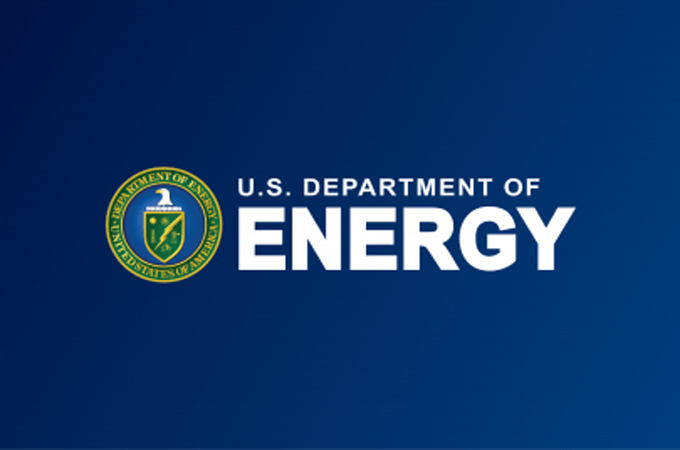
The US Department of Energy’s (DOE) Office of Energy Efficiency and Renewable Energy has announced a $156 million funding opportunity that will advance high impact applied research, development, and demonstration (RD&D) projects to reduce greenhouse gas (GHG) emissions across the US industrial sector.
The Fiber Optic Association (FOA), led by EERE’s Industrial Efficiency and Decarbonisation Office (IEDO), will drive innovation to develop the next-generation technologies required to decarbonise industry, revitalise American manufacturing, create good-paying jobs, and improve community health. Decarbonising the industrial sector is critical to achieving the nation’s climate goals. In 2020, the industrial sector accounted for 33 per cent of the nation’s primary energy use and 30 per cent of energy-related carbon dioxide (CO2) emissions.
The industrial sector is also one of the most complex due to the wide diversity of energy inputs, processes, and operations. Achieving net-zero emissions across the US economy by 2050 will require an aggressive, multidimensional approach to eliminating industrial emissions.
Some technologies needed to fully decarbonise the industrial sector are in early stages of development, while others are much closer to commercialisation.
Rooted in the principles identified in the 2022 Industrial Decarbonisation Roadmap, this investment is part of the innovation pipeline DOE is building to accelerate the development and adoption of industrial decarbonisation technologies.
This funding opportunity also represents follow-on investment to the $104 million funding opportunity released last September. In contrast to that announcement, this FOA focuses on the variety of cross-sector approaches to industrial decarbonisation, and advances the goal of the Industrial Heat Shot™, which aims to develop cost-competitive industrial heat decarbonisation technologies with at least 85 per cent lower greenhouse gas emissions by 2035.
The FOA also compliments DOE’s recently released $6 billion funding opportunity for the Industrial Demonstrations Program.
IEDO’s efforts in this area are part of DOE’s new Technologies for Industrial Emissions Reduction Development (TIEReD) Program which leverages resources across DOE’s applied research offices to invest in fundamental science, research, development, initial pilot-scale demonstrations projects, and technical assistance and workforce development.
THE FOA INCLUDES THE FOLLOWING TOPICS:
Topic 1: Decarbonising Industrial Heat — In support of DOE’s Industrial Heat Shot™ this topic will focus on developing equipment to decarbonise thermal processes across the industrial sector, with potential areas of interest including: electrification of industrial heat; innovative low- and no-heat processes, and industrial heat pumps.
Topic 2: Low-Carbon Fuels Utilisation RD&D —This topic will focus on innovations to develop equipment capable of utilising low-carbon fuels, like hydrogen and hydrogen blends, with potential areas of interest including: mitigating hydrogen combustion impacts on material and product quality; developing hydrogen-based combustion systems; and low-carbon input, flexible combined heat and power (CHP).
Topic 3: Exploratory Cross-Sector R&D – This topic will include emerging R&D areas for technologies and materials that enable industrial decarbonisation.
•Subtopic 3a: Enabling Flexible Industrial Energy Use — This subtopic will focus on emerging transformational technologies that maintain manufacturing resilience and economic competitiveness while integrating renewable energy into industrial manufacturing processes. Potential areas of interest include industrial load flexibility and thermal energy storage systems.
•Subtopic 3b: Enhanced Thermal Conductivity Materials —This subtopic, funded by the Advanced Materials and Manufacturing Technologies Office (AMMTO), will focus on enhanced thermal conductivity materials to improve the performance and efficiency of electrified thermal processing equipment.
Topic 4: Decarbonising Chemicals — This topic will focus on decarbonisation technologies for high-volume chemicals with significant CO2 emissions, including advanced separations processes, advanced reactor systems, and dynamic catalyst science.
Topic 5: Decarbonising Iron and Steel —This topic will focus on decarbonisation opportunities in iron and steel production, with potential areas of interest including: innovative manufacturing technologies to enable decarbonisation; electrification of existing manufacturing processes; overcoming challenges associated with utilising hydrogen in steelmaking; and addressing scrap contaminants in recycling.
Topic 6: Decarbonising Food and Beverage Products — This topic will focus on low- and zero-carbon solutions for process heating, cooling, and refrigeration in a wide variety of energy-intensive food and beverage operations.
Topic 7: Decarbonising Cement and Concrete — This topic will focus on addressing cement’s direct process emissions, with potential areas of interest including: sustainably sourced supplementary cementitious materials (SCMs) for clinker substitutions and blended cements; novel decarbonised production processes for Portland cement or lime; novel, low-carbon non-ordinary Portland cement formulations; and CO2 mineralisation.
Topic 8: Decarbonising Forest Products — This topic will focus on decarbonisation opportunities in energy-intensive drying, paper forming, and pulping processes. --OGN









































































